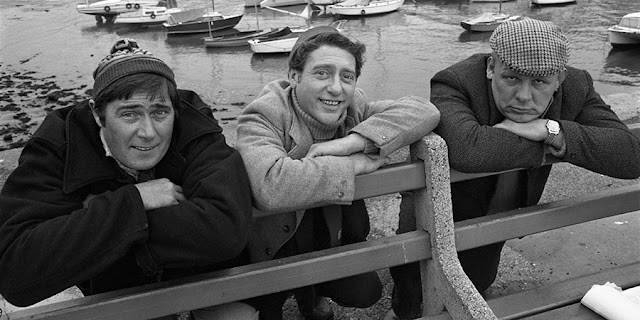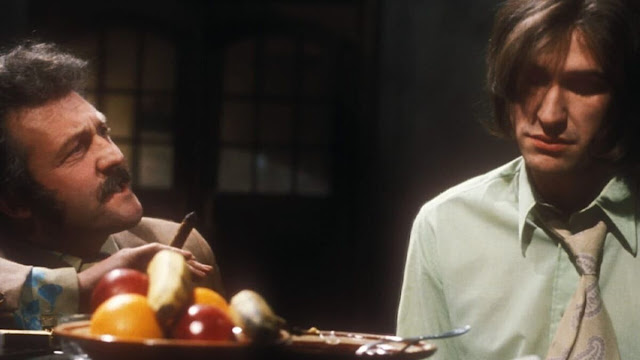Under the Hammer by Stephen Fagan, broadcast 1984

Zoë: I loved this play. It is set in a very superior English auction house as a pre-sale paintings exhibition is being readied for public view. The credits roll to the sound of an auctioneer calmly accepting bids in the hundreds of thousands. This soundtrack fades as the opening scene is revealed - porters in dust coats setting up partitions and hanging pictures, while suave, suited men stroll about, discreetly overseeing things. Peter Vaughan, the man who is clearly the senior porter climbs down from a step ladder and announces it is time for a tea break. All the porters down tools and we head with them below stairs. Peter Vaughan's character, Les Stone, acts as mother, pouring milk into everyone's mugs of tea and handing them around. After a discussion about the technicalities of lighting and the unreliability of the electricians with whom the porters work, Les reveals that the Princess of Wales will be visiting tomorrow. This news is received with excitement by almost all t


